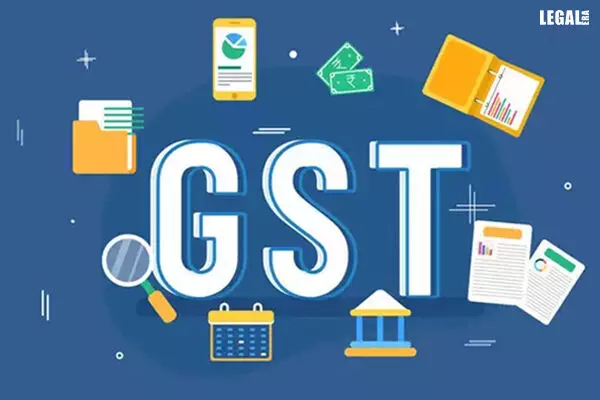- Home
- News
- Articles+
- Aerospace
- Agriculture
- Alternate Dispute Resolution
- Banking and Finance
- Bankruptcy
- Book Review
- Bribery & Corruption
- Commercial Litigation
- Competition Law
- Conference Reports
- Consumer Products
- Contract
- Corporate Governance
- Corporate Law
- Covid-19
- Cryptocurrency
- Cybersecurity
- Data Protection
- Defence
- Digital Economy
- E-commerce
- Employment Law
- Energy and Natural Resources
- Entertainment and Sports Law
- Environmental Law
- FDI
- Food and Beverage
- Health Care
- IBC Diaries
- Insurance Law
- Intellectual Property
- International Law
- Know the Law
- Labour Laws
- Litigation
- Litigation Funding
- Manufacturing
- Mergers & Acquisitions
- NFTs
- Privacy
- Private Equity
- Project Finance
- Real Estate
- Risk and Compliance
- Technology Media and Telecom
- Tributes
- Zoom In
- Take On Board
- In Focus
- Law & Policy and Regulation
- IP & Tech Era
- Viewpoint
- Arbitration & Mediation
- Tax
- Student Corner
- AI
- ESG
- Gaming
- Inclusion & Diversity
- Law Firms
- In-House
- Rankings
- E-Magazine
- Legal Era TV
- Events
- News
- Articles
- Aerospace
- Agriculture
- Alternate Dispute Resolution
- Banking and Finance
- Bankruptcy
- Book Review
- Bribery & Corruption
- Commercial Litigation
- Competition Law
- Conference Reports
- Consumer Products
- Contract
- Corporate Governance
- Corporate Law
- Covid-19
- Cryptocurrency
- Cybersecurity
- Data Protection
- Defence
- Digital Economy
- E-commerce
- Employment Law
- Energy and Natural Resources
- Entertainment and Sports Law
- Environmental Law
- FDI
- Food and Beverage
- Health Care
- IBC Diaries
- Insurance Law
- Intellectual Property
- International Law
- Know the Law
- Labour Laws
- Litigation
- Litigation Funding
- Manufacturing
- Mergers & Acquisitions
- NFTs
- Privacy
- Private Equity
- Project Finance
- Real Estate
- Risk and Compliance
- Technology Media and Telecom
- Tributes
- Zoom In
- Take On Board
- In Focus
- Law & Policy and Regulation
- IP & Tech Era
- Viewpoint
- Arbitration & Mediation
- Tax
- Student Corner
- AI
- ESG
- Gaming
- Inclusion & Diversity
- Law Firms
- In-House
- Rankings
- E-Magazine
- Legal Era TV
- Events
Allahabad High Court rules proceedings cannot be initiated if rectified tax invoice, e-way bill are produced before passing detention order

Allahabad High Court rules proceedings cannot be initiated if rectified tax invoice, e-way bill are produced before passing detention order
Cites the earlier decisions in the Axpress Logistics India vs. Union of India and Bhumika Enterprises vs. State of UP cases
The Allahabad High Court has held that once rectified/correct tax invoices and e-way bills are produced before the authorities prior to passing the detention/seizure order, the proceedings under the Goods and Service Tax (GST) Act, 2017 cannot be initiated.
The Bench comprising Justice Piyush Agrawal relied on the decision of the division Bench of the Allahabad High Court in the Axpress Logistics India Pvt. Ltd. vs. Union of India and others and Bhumika Enterprises vs. State of UP and others cases.
The Court held, “Once the documents were produced before passing the detention/seizure order, the authorities ought not to have proceeded further as held by the division Bench judgment of this Court in the Axpress Logistics and Bhumika Enterprises case.”
The petitioner is a proprietor engaged in the business of manufacturing and sale of laminated papers.
The goods were dispatched from Muzaffarnagar, Uttar Pradesh, to Rajasthan along with tax invoices, e-way bills, and GR. During transit, they were intercepted, and Form GST MOV-2 was issued after recording the statement of the truck driver. Thereafter, Form GST MOV-04 was issued on the grounds that the goods were different from the ones mentioned in the documents. Dissatisfied with the reply of the petitioner, the penalty order was passed, and its appeal was dismissed.
The petitioner contended that a rectified tax invoice and e-way bill were produced to the authorities before they carried out physical verification. However, the show-cause notice and the penalty order were passed without proper consideration. The petitioner added that once genuine tax invoices and e-way bills were produced, the proceedings should not have been initiated. It was an error on the accountant’s part, as the petitioner had no intention to evade tax.
The petitioner relied on the earlier decisions of the Allahabad High Court to make its point.
On the other hand, the respondent submitted that as discrepancies were found at the time of detention of goods if interception was not made, the petitioner would have successfully evaded tax. The subsequent tax invoice was a breach of Rule 31 (1) of the Uttar Pradesh GST Rules.
The Bench observed, “The authorities did not accept the documents on the ground that they were produced after the movement of the goods. But lost site of the fact that the discrepancies were cured before the detention or seizure order could be passed.”
It stated that the authorities should not have proceeded once the documents were produced. The Court thus set aside the impugned order, directing the first appellate authority to pass fresh orders.


